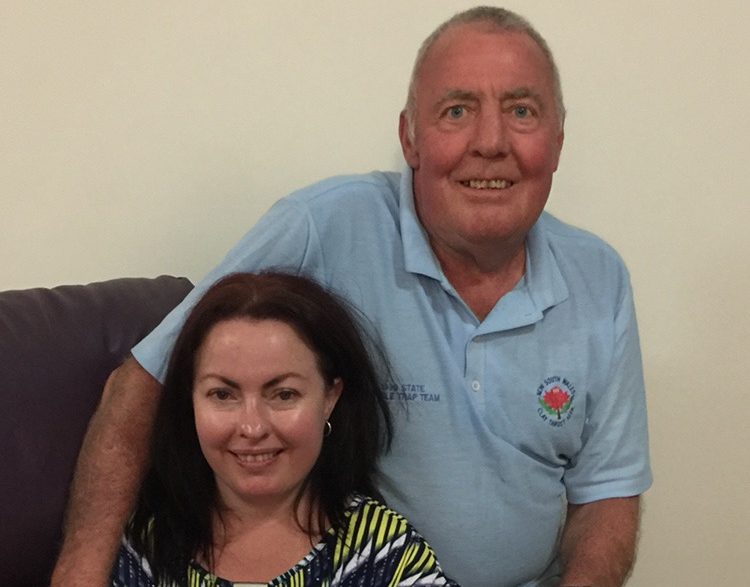Blood cancer doesn’t stop: Mick’s story
Editor’s note: Several weeks after Mick shared is story with us he sadly passed away due to complications from his transplant. His family told us they were happy for his story to remain on our website to help others.
Mick was diagnosed with blood cancer and is now preparing for a transplant after two unsuccessful rounds of chemotherapy. The 63-year-old must travel interstate for the life-saving transplant, a journey made more challenging by COVID-19.
Mick spoke to us about the how he is staying calm in the face of the outbreak.
“The government has announced the shutting of state borders, but we’ve been assured we won’t have an issue getting through”

Avoiding infection
We are isolating ourselves – and arm’s length is not far enough. I’ve always liked shaking hands with people but now I can’t do it. I’ve never used so much soap and detergent to wash my hands in my life! Whenever I touch anything, I immediately wash my hands and I avoid touching my face. There are no confirmed cases of COVID-19 in our hometown so feel a bit more at ease, but we are still staying well away from people.
Impact on treatment plan
My daughter, Tracey, is my bone marrow donor. I go into hospital on April 2, and then have five days of chemotherapy treatment. On the sixth day they hit me with radiation to kill any leukaemia cells in my body. Then on April 9 I have the transplant. That’s when my body will be totally run down, and I will be neutropenic. This means my body’s defense mechanisms against infections will be severely impaired.
With the spread of COVID-19, doctors have told us I may be in intensive care for a few days if they don’t have space on the ward. I don’t believe a virus could possibly get through to the transplant ward because it’s already set up to ensure people with no immunity are safe from infection.
In hospital
I will be in a secure environment at the hospital so the worries of being exposed to a vrius like COVID-19 will be very much alleviated. I’m really confident my medical team are going to take good care of me. It’s probably the best place to be; the staff will be on high alert making sure you don’t get exposed to anything that could compromise your health. The bone marrow transplant team have also told us to expect all health staff at the hospital to be in extra protective gear.
Travelling for treatment
We will be travelling back interstate to a Leukaemia Foundation accommodation centre before my transplant. The government have announced the shutting of state borders, but we have been assured we won’t have an issue getting through as I’m a special medical case.
Finding extra support
At least I know I can call the Leukaemia Foundation anytime things start to get overwhelming.
Staff at the Leukaemia Foundation have referred me to a relaxation therapist as that has really worked for me in the past. I would recommend others to access that service if you’re feeling a bit anxious or uneasy at the moment.
Parallels run deep
I see other people going through a blood cancer diagnosis, travelling in for a series of tests and saying ‘it’s only going to be a couple weeks’ but I know they’re in it for the long haul. I think it’s the same with COVID-19 – we need to think and prepare for the long-term ramifications.
In memory of Michael Blenman 1957-2020
#yourstorycounts
Share your story of living with blood cancer in the COVID-19 crisis.
Tell us how the outbreak has impacted your every-day life and how the Australian community can best support you through this uncertain time.
Also share your message of support for other blood cancer families and advice for keeping safe during the outbreak.
We may then share on this page for our blood cancer community.
Email [email protected] with your story.
Last updated on May 24th, 2024
Developed by the Leukaemia Foundation in consultation with people living with a blood cancer, Leukaemia Foundation support staff, haematology nursing staff and/or Australian clinical haematologists. This content is provided for information purposes only and we urge you to always seek advice from a registered health care professional for diagnosis, treatment and answers to your medical questions, including the suitability of a particular therapy, service, product or treatment in your circumstances. The Leukaemia Foundation shall not bear any liability for any person relying on the materials contained on this website.